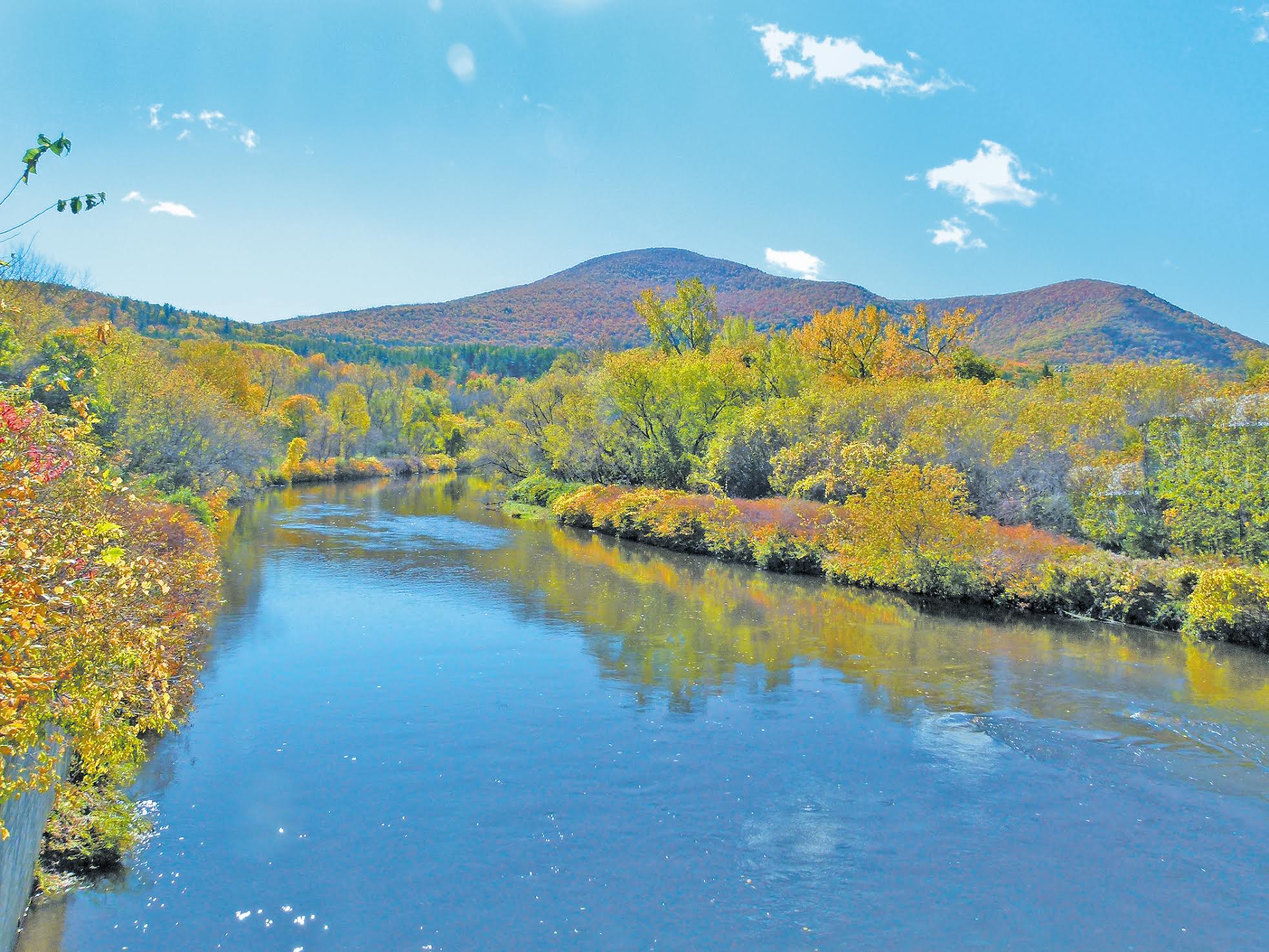Adams
Adams was incorporated in 1778 and is located along the banks of the Hoosac River.

Adams was incorporated in 1778 and is located along the banks of the Hoosac River.
The Town of Barre is a small rural community located 61 miles from Boston, almost exactly in the center of the State, and covers 44.8 square miles.
A scenic colonial village founded in 1762 as a land grant to a troop of soldiers victorious over Indians at Turners Falls.
A rural community settled in 1749. A watering trough marks the site of the first homestead.
A scenic New England Village with rolling farm land, apple orchards and a winery.
Deerfield, settled in 1669, remains today the "New England that visitors hope to find".
The first settler, Dr. Daniel Nelson came to this town from Stafford, Connecticut. The town was incorporated July 15, 1805.
Named for Moses Gill, the settlement was originally part of Greenfield, becoming an independent township in 1793.
This town, the Franklin County Seat, is named for the green and fertile valley it occupies. Originally part of Deerfield, Greenfield was incorporated in 1753.
Incorporated in 1792, Hawley has a population of around 350. The town is divided by the Kenneth Dubuque State Forest into East Hawley and West Hawley sections.
Home of the Heath Fair, held every August, it's a true agricultural fair with horse and ox draws, agricultural exhibits, food booths and concerts.
New Ashford was named after the ash fort standing at the foot of Mt. Greylock. A stronghold against Indian attacks and a defense during the French and Indian War.
From tiny Florida, you pass the breathtaking Western Summit and take the Hairpin Turn into North Adams. In the nineteenth century, North Adams was the bustling hub of industry in the Berkshires, leading the area in the production of paper, textiles and leather goods.
The beautiful area of Central Mass. consists of many scenic, quaint communities, historical and artistic sites that will enhance your travel and make your trip memorable.
Located on the Connecticut River on the New Hampshire border, Northfield was established in 1671 by a small group of settlers from around Northampton and destroyed by Indians.
A town of just over 7,000 people. Named after William Prince of Orange. Millers River brought industry to the town and around 1900 Orange was the site of the first automobile factory in the United States.
Originally known as "Volunteers Town" for the colonist-soldiers who received land for service to the Crown, and then, Nichewaug, after the native American tribe inhabiting the area, Petersham received its present name at the caprice of the King's General Court.
Rowe is a small hilltown in northwestern Massachusetts, with a population of 390. The town is one of scenic beauty, with wooded mountains, clear brooks, and the Deerfield River on its border.
A tiny colonial village established in 1771, located in the hills above Adams along Route 116. With breathtaking scenery and a central country store, Savoy is a convenient and beautiful stop on the Mohawk Trail.
Incorporated in 1768 this hilltown still features many fine aspects of old New England. Dotted throughout the community are working dairy farms, apple orchards and sugarbush.
How often can you drive into a town and find it not to be a town at all, but actually two towns meeting at river's edge. Connected just a little above Salmon Falls by the world renowned Bridge of Flowers, Buckland and Shelburne become the picturesque Shelburne Falls.
The Village of Turners Falls, located on the Connecticut River in the Town of Montague, was developed as a planned industrial community in the late 1800's.
Westminster, situated on Route 2A near the beginning of the Mohawk Trail is in the midst of Johnny Appleseed country.
A colonial town and home of Williams College. Endowed with natural beauty and offering many cultural attractions, "The Village Beautiful" has a proud and colorful history.

